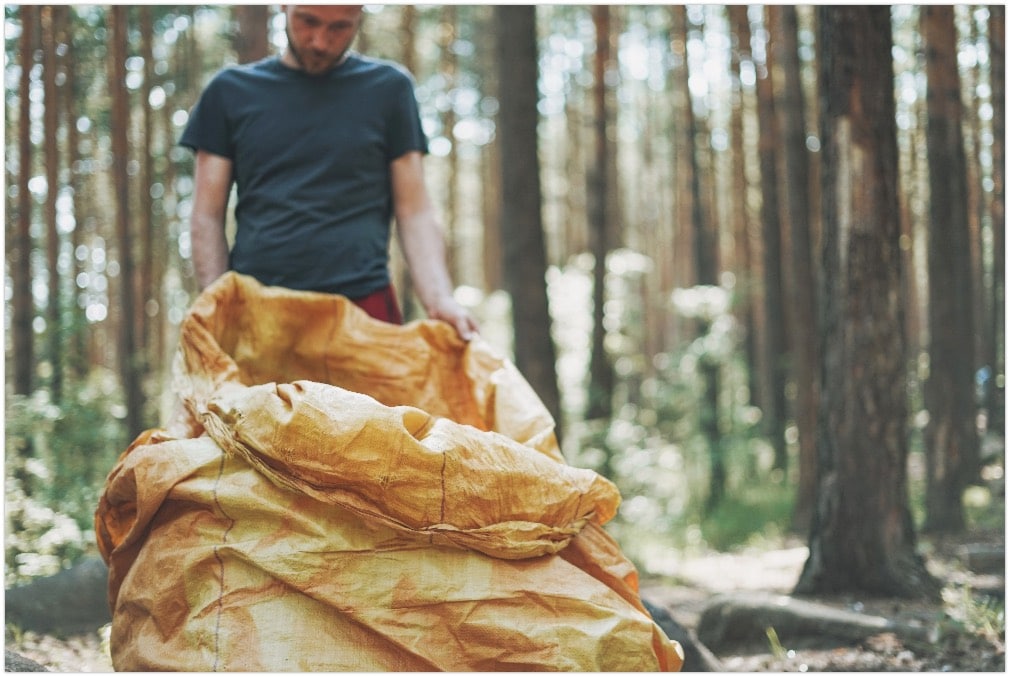Landfills are amongst the common endpoints of most of our household and commercial rubbish. Although there are council’s rubbish collections roaming within your place, these might take days or even weeks to get your heaps of rubbish eliminated. Could burying be the best way to end all the hassles and financial burden of dumping all your unwanted items?
An average Australian household can store many hazardous substances from garden chemicals to electronic wastes. Aside from that, it’s food scraps and yard wastes that can take the biggest slice of your household waste chart. Burying all these has some shortcomings— contaminating nearby soil, water and your whole surrounding.
Burying your garbage might provide a short-term solution in concealing all your insurmountable rubbish pile. However, its hazardous remnants might find its way to your greenery and other food products served on your dining table. Let’s dig deeper not to bury your wastes, but to see its possible dangers to your surrounding and one’s health.
The Danger Starts With Space Issues
No one wanted to have outdoor spaces filled with unsightly heaps of garbage. You can only hope that all this rubbish would end in recycling facilities. But it isn’t the reality where it’s more practical to bury all these, particularly if you’re only handling garden scraps and leftovers.
As for space, burying all your unwanted items can give you the spotless outdoors you wanted. Although this can help you avoid any infections and injuries from unattended garbage, this is where the issue starts. Even secured landfills have environmental implications, this goes the same with burying some of your waste within your premises.
Buried Garbage Contaminates The Soil
The rate of soil contamination can depend on what type of garbage you bury. In 2016-17, Australia generated 3.5 million tonnes of plastics while recycling less than 10 percent of the total wastes. Burying your household plastics can contaminate the soil.
Over time, these buried plastics start to break down and produce harmful substances to the surrounding soil. For example, your buried plastic bottles can break down to release diethylhydroxylamine― causing us reproductive incapabilities, liver dysfunction and weight loss issues. An attempt to conceal this rubbish on the ground can expose you to extreme health danger.
Other than plastics, you might worsen soil contamination by spilling or opting to bury your hazardous wastes such as used paints, solvents, fabric cleaning and electronic parts. Plants in your contaminated soil can absorb all these dangerous substances. Consuming fresh produce from plants growing in your contaminated soil can cause severe health problems to you and anyone in return.
Wet Garbage Contaminates Nearby Water Source
As your buried garbage starts to contaminate your soil, the rainwater can carry its harmful substances along the way. Several metres below the ground lies the aquifer that stores 98 per cent of the world’s available freshwater. Aquifers provide abundant water supply to your neighbourhood, irrigation system and even in the bottled water industry.
Imagine these freshwater sources getting contaminated; it can affect your neighbourhood’s fountain, lake, ponds and even the running water taps in your home. Aside from the possibility of consuming contaminated fresh produce, you’re also on the verge of using dirty water. Who are the victims of contaminated waters? It’s all the plants, animals and us, humans.
Organic Wastes Can Pollute Air Quality
How come that the danger of burying your garbage can affect the air quality? The main culprit for this is your food scraps and organic wastes. Burying all these garbage piles allow them to decompose in an anaerobic condition that produces a massive amount of methane, carbon dioxide and other greenhouse gases.
The decomposition of your organic wastes and food scraps beneath the ground can release a vast amount of methane. According to the Environmental Protection Agency (EPA), methane can last for 9-15 years and 20 times more effective to trap heat than carbon dioxide. It could only mean one thing: burying all your garbage wastes can pollute the air and worsen the global climate change.
Conclusion
Burying your garbage seems so easy to do, yet has many shortcomings. The burying method is also escalating to most of our overladen landfills. Buried garbage can endanger one’s health, other living creatures and the environment. Over time, its negative impacts can haunt not only us but also our future generation.
There’s still no better practice than reduce, reuse and recycle when it comes to eliminating your heaps of garbage. At Paul’s Rubbish Removal, we got the best team to help you with all that. We have partnered with the vast network of recycling facilities across Sydney to divert most of your garbage from the congested landfills.
We ensure to recycle most of the rubbish we collect from you. Our over ten years of industry experience allow us to offer the most eco-friendly and comprehensive rubbish removal services. We are only a phone call away at 0407 125 125 to get rid of your rubbish safely and efficiently.







